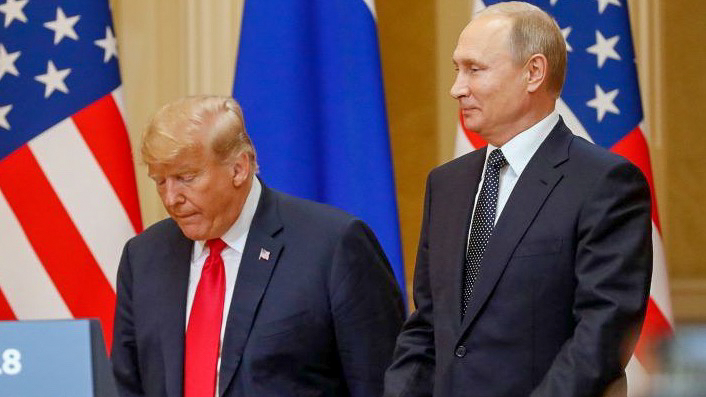Failure of Steele Dossier Emphasizes Importance of Journalistic Integrity
For four years, the American people were told that former President Donald J. Trump colluded with Russia. The Russian collusion narrative damaged a presidency marked by its populist disdain for establishment “do-nothing” politicians. In the end, it was the establishment — our ill-willed institutions — who colluded. Russiagate was no more than a political ploy leveraged by our intelligence agencies and a partisan press.
Igor Danchenko, the Russian informant who allegedly gathered the “dirt” in the Steele dossier, is now accused of lying at least five times to investigators, according to special counsel John Durham. These lies were meant to cover up a lack of evidence as Danchenko did not have sources for his allegations besides a few Clinton operatives. According to the Associated Press, Danchenko was the main source for Christopher Steele’s notes, also known as the notorious Steele dossier, and yet the two never met.
Danchenko alleged to the FBI he received a phone call in July 2016 from Sergei Millian, the then-president of the Russian-American Chamber of Commerce, who told him about a “well-developed conspiracy of co-operation” between the Trump campaign and the Kremlin. According to the charging documents used in Danchenko’s indictment, Danchenko never received this phone call and instead fabricated these facts.
The dossier consisted of unverified research claiming that Russian security services held a tape of Donald Trump performing salacious acts in a Moscow hotel room where the Obamas previously stayed. Danchenko admitted much of the report was based on “rumor and speculation.” Other allegations, such as the claim that Trump’s lawyer Michael Cohen met in Prague with Russian intel operatives, were also disproven. The FBI “was ultimately not able to confirm or corroborate” most of the allegations in the dossier.
It is plausible that Clinton officials were the ones to feed Danchenko with disinformation which was then laundered through British spy Christopher Steele. The FBI used the accusations included in the Steele dossier as a means to wiretap Trump campaign adviser Carter Page. Later, the Justice Department later acknowledged that this was an “insufficient” cause to wiretap Page.
It is true that Obama intelligence official James Clapper claimed that, to his knowledge, the Intelligence Community tried to validate the dossier’s sources. However, we do not know if James Clapper and John Brennan knew the dossier wasn’t credible and were continuing to treat it as substantial evidence anyway.
A host of current and former intel officials served as anonymous sources for the Washington Post, New York Times and other major media outlets. Journalists ignored due diligence, unquestionably believing the given narrative. Ironically enough, Pulitzer prizes were even awarded for their misguided stories. MSNBC’s Rachel Maddow spewed the conspiracy theory to millions daily, an example of the fake news we hear about so often. Since 2016, Maddow, among many others within mainstream media, have raged about Russiagate.
However, the FBI never found confirmation of any of the evidence. Special counsel Bob Mueller and his team found nothing, either. The FBI interviewed Danchenko soon after Trump’s inauguration only to learn it was baseless gossip. It was only a year later that the FBI would make this public.
House Intelligence Committee chair Rep. Adam Schiff is also guilty in his relentless promotion of the conspiracy, yet he still takes no accountability.
Danchenko made up conversations that Steele, whose research was funded by Democrats, perpetuated by embellishing them as originating from Russian sources. The sources were from a Democratic public relations specialist, Charles Dolan, a former executive director of the Democratic Governors Association who advised Clinton’s 2008 presidential campaign and volunteered for her 2016 campaign. Yet, ABC News went on to host Christopher Steele for an interview in which Steele defends his dossier.
There is a “fake news” media; it’s called the partisan press. When journalists become overly entrenched and invested in their own narrative, they seep below the standard. None of these outlets will recant, leaving some of their audience likely unaware of the truth. Mainstream journalists have failed the American people.
There is also something to be said of our intelligence agencies’ disingenuous acts. For instance, the DOJ’s stance against parental control when it comes to critical race theory in schools should say enough. No one will be aware of this conflict unless the mainstream media reports on it, and even if they do, it will probably have a vulgar slant. People need to wake up and see that the lies are building up to an astronomical point.
It is time to consider independent media.
Brian Pfail, FCLC ’22, is a communications major from Ronkonkoma, N.Y.










































































































































































































